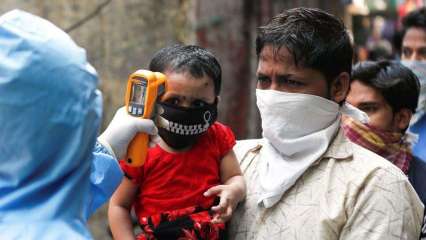Source: DNA | Title: Centre issues guidelines to combat COVID in rural, tribal areas – Check here 

As rural areas are seeing a rise in COVID-19 cases, the Centre on Sunday issued new guidelines for containment of the virus. Door-to-door surveillance, teleconsultation with community health officers, and training in rapid antigen testing are among the several areas of focus in the new guidelines against COVID-19.
The ministry released the ‘SOP on COVID-19 Containment and Management in Peri-urban, Rural & Tribal areas’ to enable communities to strengthen primary level healthcare infrastructure at all levels to intensify COVID-19 response.
The health ministry guidelines said that in every village, active surveillance should be done for influenza-like illness/severe acute respiratory infections(ILI/SARI) periodically by ASHA with help of Village Health Sanitation and Nutrition Committee (VHSNC).
New SOPs/guidelines issues by govt to battle COVID-19 in rural areas:
1. Provision of Rapid Antigen Test (RAT) kits should be made at all public health facilities including Sub-centres or Health and Wellness Centres and Primary Health Centres, the Union Health Ministry said.
2. Symptomatic cases can be triaged at village level by teleconsultation with Community Health Officer (CHO), and cases with comorbidity or low oxygen saturation should be sent to higher centres.
3. It said COVID Care Centres (CCC) can admit a suspect or confirmed case but should have separate areas for suspected and confirmed cases with preferably separate entry and exit for each. “Suspect and confirmed cases should not be allowed to mix under any circumstances,” the SOP said.
4. In every village, active surveillance should be done for influenza-like illness/ severe acute respiratory infections(ILI/SARI) periodically by ASHA with help of Village Health Sanitation and Nutrition Committee (VHSNC).
5. As monitoring of oxygen saturation is important for monitoring of COVID patients, it is desirable for each village to have adequate number of pulse oximeters and thermometers.
6. “Nearly 80-85 per cent COVID-19 cases are asymptomatic/ mildly symptomatic. These patients do not require hospitalisation and may be managed at home or in Covid care isolation facilities,” the SOP stated.
7. Identified suspected COVID cases should link for testing to health facilities either through COVID-19 rapid antigen testing or by referral of samples to nearest COVID-19 testing laboratory, in accordance with ICMR guidelines.
8. The SOP recommended developing a system of providing pulse oximeters and thermometers on loan to families with a confirmed case of COVID through ASHA/ Anganwadi workers and village-level volunteers.
9. “Home Isolation kit shall be provided to all such cases which should include required medicines such as Paracetamol 500 mg, Tab. Ivermectin, cough syrup, multivitamins (as prescribed by the treating doctor) besides a detailed pamphlet indicating precautions to be taken, medication details, monitoring proforma for patient condition during home isolation, contact details in case of any major symptoms or deterioration of health condition and the discharge criteria,” the SOP stated.
10. Follow-ups for patients undergoing isolation or quarantine could be done through household visits by a frontline worker/ volunteers/ teacher duly following required infection prevention practices including use of medical mask and other appropriate precautions.
11. The health infrastructure planned for peri-urban, rural and tribal areas shall be aligned to the already mentioned 3-tier structure — COVID Care Centre (CCC) to manage mild or asymptomatic cases, Dedicated COVID Health Centre (DCHC) to manage moderate cases and Dedicated COVID Hospital (DCH) to manage severe cases, according to the document.
